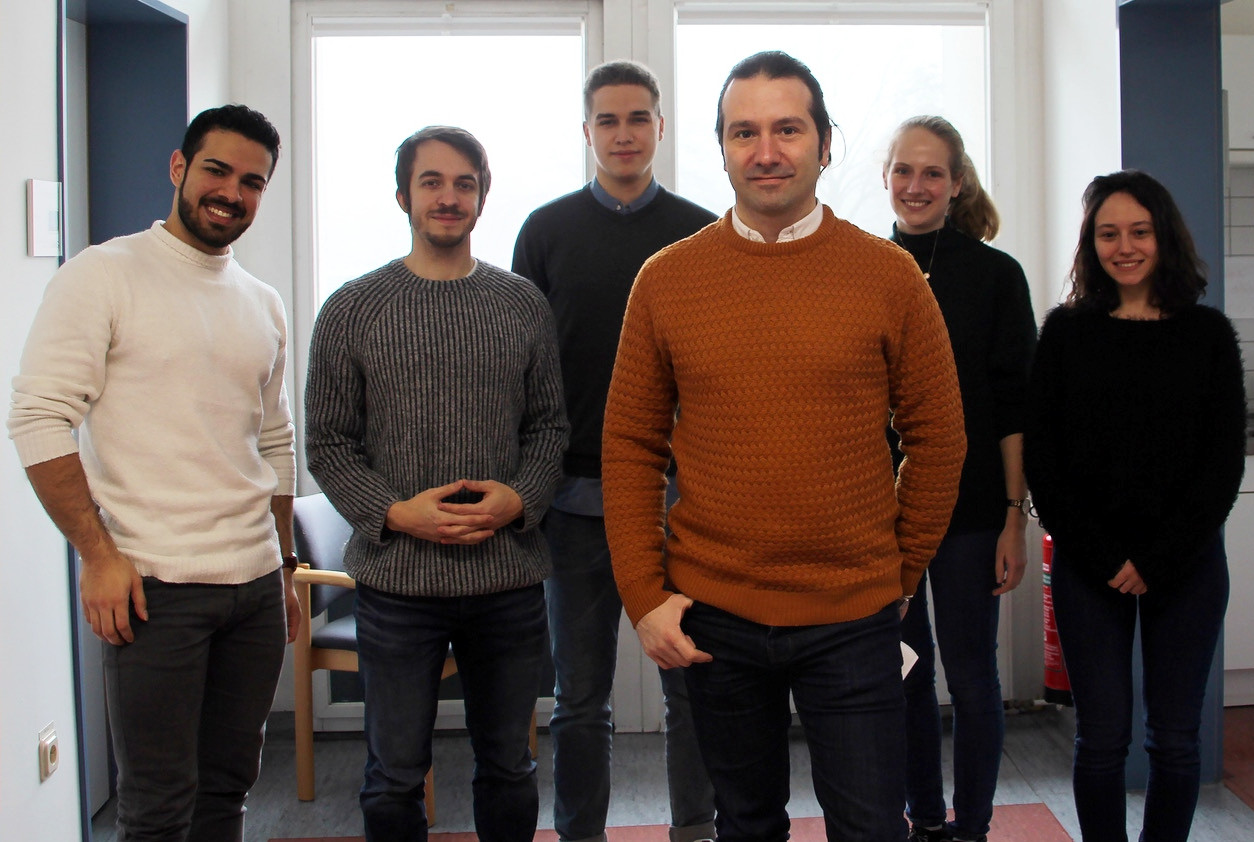Laboratory of Systems Neuroscience and Imaging in Psychiatry (SNIP-Lab)
Research group of the Department of Psychiatry and Psychotherapy
The Laboratory of Systems Neuroscience and Imaging in Psychiatry (SNIP-Lab) was established to bridge the research fields of Systems Neuroscience and Translational Brain Imaging. We are convinced that a substantial improvement in differential diagnoses and therapies in psychiatry will be achieved through a deeper understanding of neural systems and their functions. In the SNIP-Lab, we are particularly engaged in the multimodal investigation of neural networks and their dynamic interactions, the effects of pharmacological treatments and repetitive transcranial magnetic stimulation. Another research area of our laboratory is the development of potential biomarkers from imaging data, which can be integrated with phenotypic and genetic / epigenetic information for improved classification and prediction of the response to treatments of psychiatric disorders.
The research group is one of UMG's junior research groups: https://www.gesundheitsforschung-bmbf.de/de/e-med-nachwuchsgruppe-prenest-untersuchung-von-hirnnetzwerken-durch-nicht-invasive-4050.php
Aims
Aims are to
- integrate f/MRI data with phenotypic and epi/genetic data
- perform univariate and multivariate analyses, including machine learning and deep learning approaches
- optimize decisions in pharmacotherapy and repetitive transcranial magnetic stimulation according to systems medicine (identification of treatment response and response prediction markers)
Selected projects
Pre-mapping Networks for Brain Stimulation (PreNeSt)
- PreNeSt Phase 1: The effects of repetitive transcranial magnetic stimulation (rTMS) within the stimulated neural network and other non-stimulated networks are unknown. We will investigate these local and global effects through a systematic approach (http://www.sys-med.de/en/young-investigators/junior-research-groups/prenest/).
- PreNeSt Phase 2: rTMS is already approved for the treatment of depression, but there is still a high level of variability in clinical outcomes. For this reason, our goal is to find out whether customizing the rTMS protocol can reduce this variability and improve the clinical outcomes. Bipolar patients may possibly benefit from this approach. The role of potential genetic and epigenetic markers in therapeutic success is also being investigated in collaboration with colleagues from the Institute of Human Genetics at the University Hospital Bonn.
Differential Diagnosis and Medication-related Changes in Neural Networks in Affective Disorders (AFFDIS)
Epidemiological data show that differential diagnosis of affective disorders in the clinical setting is rather difficult despite the best efforts. For the selection of appropriate drug treatment options, it is essential to distinguish a bipolar from a unipolar depression as early as possible. Here, we investigate characteristic neural network conditions as potential markers of differential diagnosis of unipolar vs. bipolar disorders with a phenotypically similar manifestation of depressive symptoms.
Preliminary results suggest that the use of characteristic network conditions may facilitate a differential diagnosis of unipolar and bipolar disorders. For this reason, a second phase of the project is planned to investigate drug treatment associated network changes with univariate and multivariate pattern analysis of fMRI data integrated with phenotypic and epigenetic changes. Potential epigenetic markers for therapeutic success are being investigated in collaboration with colleagues from the German Center for Neurodegenerative Diseases (DZNE).

Contact
Research Group Leader
PD Dr. Roberto Goya-Maldonado
+49 551 3922244
roberto.goya(at)med.uni-goettingen.de
Members
- Caspar Riemer
- Asude Tura
- Jonas Wilkening
- Fabian Witteler
- Anna Wunderlich
- Valérie Aurélia Lucie Zimmeck
- Anna Zobott (M. Sc. Psych.)